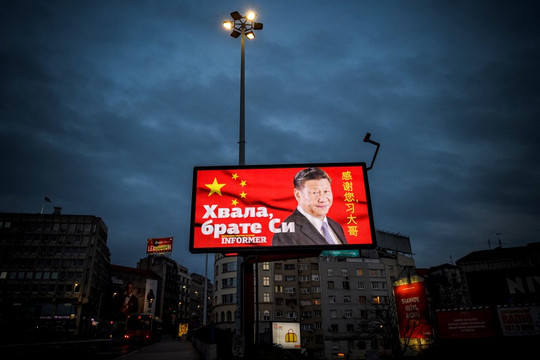Building Bridges
The China Road and Bridge Corporation, a state-owned enterprise, built the Pupin Bridge across the Danube River in Belgrade in 2014. Since then, China has built a great deal more in Serbia. In June 2019, Huawei partnered with Serbia to roll-out its first 5G base station in the Science-Technology Park Belgrade. Huawei also teamed up with Serbia’s Interior Ministry on a “Smart Cities” project involving the installation of over 1,100 surveillance cameras with facial recognition capabilities for traffic and crime control, raising concerns over public interest journalism.
State Sponsored Stories
China has benefitted from, but also abetted, an increasingly illiberal Serbian government which “welcomes Chinese investment as a boon to its political fortunes”. Serbian authorities increasingly control government agencies, the national security apparatus, and the media. An RSF report into Serbian media ownership found that the country’s weak economy and constant problems with liquidity enables the state to shape the media market through direct ownership and other models of state financing, such as tenders for media projects, procurement of media services and advertising contracts.
Unlike other countries, where China goes to great lengths to manipulate coverage through content sharing agreements and media procurements, in Serbia the government has decidedly controlled the narrative for them. As Serbian foreign policy analyst Vuk Velebit said, “The way the Serbian tabloids and state officials once treated Russia, praising it to the heavens, is the same way they now treat China”.

